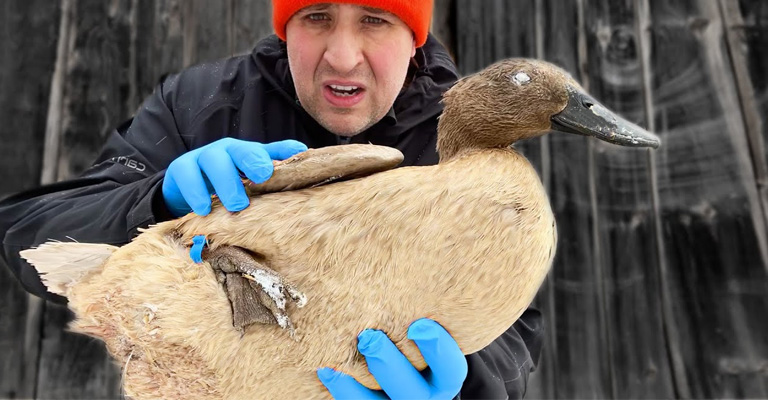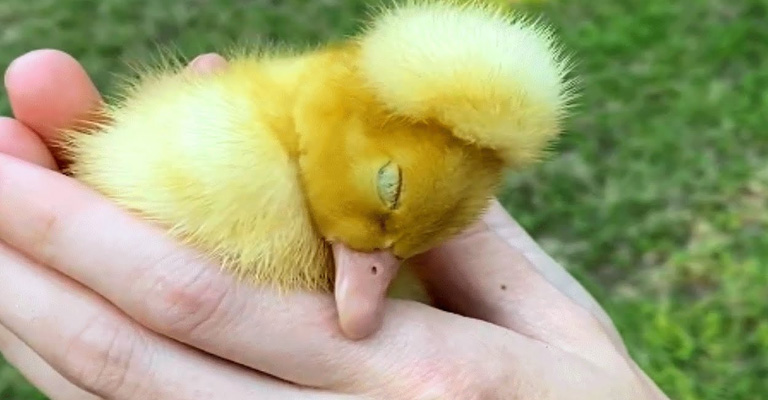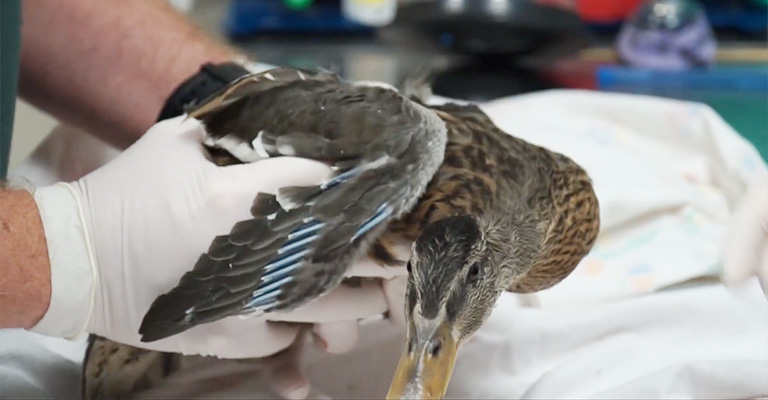As cute as it may sound when ducks wag their tails, it can be the opposite when ducks start dying one by one without any viable reason.
Between 1991 – 1992, domestic ducks started dying one by one with a mysterious outbreak in the United States of America. It happened in two stages.
At first, 4 out of 30 domestic ducks died and in the second outbreak, 65 of them died within a flock of 130 docks (Source). Ducklings of 2 to 7 weeks old, mature, and older ducks all were affected by this mysterious disease.
Are you in the same shoes? Have the ducks on your farm started dying despite provided care and proper treatment? It’s time to figure out what’s been happening to them. Let’s begin.

You Should Know,
Before we start, it’s important to know a few things regarding ducks’ health and their nature. Hop on,
- Ducks have a remarkable ability to regenerate their digestive system. They can recover from some digestive illnesses and injuries too, which could be often life threatening to most other animals.
- They have a fascinating respiratory system. It allows them to extract a higher percentage of oxygen from the air. They can use the extra oxygen for diving and underwater food hunts.
- Male ducks have a special bodily feature. They often undergo a brief period of eclipse plumage after breeding. During this time, they molt into a duller and more shrouded appearance. It helps them stay hidden during the molting period.
- Ducks can produce oil with a special gland – Preen Gland (PG). It is a holocrine gland located at the base of the tail. It generates the preen oil. Ducks distribute it with their bills to other feathers.
- Ducks are highly social birds and often move in large flocks. They use a variety of tones and body postures to communicate with each other. Additionally, head pumping is one of the few interesting traits of ducks to bond with each other.
Now, we know a few special characteristics of ducks. Mark one thing, since they stay and move in flocks when one of them gets a disease, it can be easily transmitted to others, as fast as a bullet train!
That’s why, any outbreak in ducks will end up in a high toll for them.
Common Causes of Why Ducks Dying Suddenly & Solutions:

There are different reasons why ducks may start dying out of nowhere. However, the most common causes are Duck Viral Enteritis (DVE), heat stroke, water belly, ascites, or suffocation.
If you are thinking of a community, where ducks are dying in mass, the most common cause is Sudden Death Syndrome or Duck Viral Enteritis (DVE).
Other than that, we also have Avian influenza, botulism, and duck plague are also responsible for mass death in ducks. Additionally, if water in your region is contaminated, you may also notice a significant decline in the number of ducks.
Heat stroke or choking will affect specific ducks, but can’t attack all at the same time. Let’s focus on the cause of mass declination.
DVE in Ducks
Also known as the Duck Plague, it can become serious if actions are not taken immediately. It is a highly contagious disease and affects ducks, geese, and swans all over the world.
Sadly, the mortality rate among the ducks is too high and you may not have enough time to treat the fellows properly.
A virus, herpes is responsible for this outbreak and the disease is highly infectious. However, it was first reported in 1967. Events of DVEs all around the world have been reported over decades.
The last recent outbreak of the Duck Plague was in India in the year of 2019. 2,000 domestic ducks out of 4,500 died and that’s the highest mortality rate of 44.4%.
The damage was devastating for the rural people of Kerala as livelihood ducks are one of the main sources of income for many people.
Symptoms of DVE
How to look out for DVE? If you raise a flock of ducks, you must always take careful measures and be on guard.
Ducks may die suddenly or, they could die several days after the symptoms show up, which gives you some time. It mostly depends on their health condition, immunity, and age.
Wikipedia says, that if lucky, domestic ducks have a 3 to 7 days incubation period, and wild ducks can have 14 days before showing the symptoms or sudden death.
You should look out for the symptoms like,
1) Loss of Appetite: The first sign is loss of appetite. Upon exposure to DVE, infected ducks may have less appetite or complete loss of appetite. It will eventually result in weight loss.
2) Depressed & No Eggs: Most ducks with DVE become depressed and lethargic. They may have decreased egg production, declining at a rate of 20% to 40%. There’s also a higher likelihood of producing abnormal eggs or eggs with soft shells.
3) Nasal Discharge: It is a common sign in ducks with DVE. Don’t misunderstand it with genuine cold. DVE in ducks can often result in runny noses.
4) Always Thirsty: Ducks usually stay hydrated and daily consume 1 liter of water. If you notice more than this, and they can’t help themselves out, it is time to get concerned.
5) Diarrhea: They may pass greenish stool, often leading to watery diarrhea. Ultimately, ducks will become dehydrated and weak.
6) Neurological Sign: Some ducks with DVE can display neurological symptoms. It may include head tremors, ataxia, loss of balance, and circling.
7) Bleeding: In acute cases, bleeding may be associated with the symptoms. They may show signs of bleeding, such as nasal discharge have blood. You may notice blood in stool or bruises on the skin too.
Mortality Rate:
DVE in ducks can result in a high mortality rate, sometimes it may reach 90%. It is estimated that ducks will die within 5 days after showing the symptoms.
Especially for the ducklings, the results are devastating. They meet a high mortality rate and may die suddenly.
Duck Treatment for DVEs

So, what’s the cure? Are you sure the ducks on your farm are affected by DVE? Let us break down the saddest part for you.
There is no specific treatment for DVEs. Ducks will eventually pass away. Vaccination for ducks is still in process in the USA. You can prevent the spreading of the virus with certain measures.
Farm owners are often too late to take preventive measures and that results in disaster. If you are concerned that it’s DVE, you can –
- Isolate infected ducks from the rest of the flock to prevent the spread of the virus.
- Maintain a healthy and hygienic environment on your farm. Keep the affected ducks separated and keep them warm.
- Offer easy-to-digest food and nutritious treats to encourage them to eat.
- Offer them water in a different bowl and don’t use it on the healthy ducks. Continue to clean water every once in a while.
- Contact a veteran and provide vitamins and minerals as advised to boost the duck’s immune system.
This is all you can do to prevent the spread of the disease and contaminate the healthy birds. However, in some extreme cases, you may need to cull the affected ducks to secure the healthy ones.
It is indeed a hard decision to make but sometimes, that’s all you need to do!
Last Words
Now you know why ducks dying suddenly on your farm! Don’t freak out. Take actions wisely to prevent the spread of the virus and be selective if you have to.
Sometimes, that’s the most appropriate decision you can take. Let us know in the comment section what you are dealing with. Also, share our article with others to increase awareness and help us grow!
We will be soon back with another article on the avians. Take a look below for more.
You Might Also be Interested in,